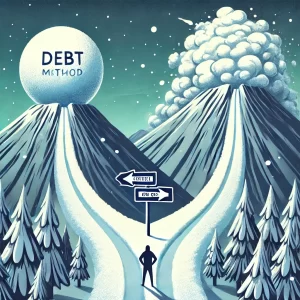What Exactly Is Budgeting? A Simple Breakdown
At its core, budgeting is about planning how to use your money wisely. Specifically, it involves setting goals—like saving for a house—estimating what you earn and spend, and deciding where your cash should go. Think of a budget as your financial GPS, guiding you through life’s money decisions while letting you tweak the route as needed.
Typically, a budget splits your money into categories: income (your paycheck or side hustle cash), fixed expenses (rent, utilities, loan payments), variable expenses (groceries, nights out, gas), savings, and debt repayment. By keeping an eye on these areas, you ensure you’re not spending more than you earn. Plus, budgeting isn’t a one-off task—reviewing it regularly keeps you on track as life changes. Curious about the basics? This process helps everyone, from students to business owners, achieve financial success.
Why Does Budgeting Matter So Much?
Now that we’ve covered the “what,” let’s tackle the “why.” Budgeting matters because it’s your ticket to taking charge of your finances. Without it, overspending sneaks up fast, debt piles up, and saving feels impossible. However, with a solid budget, you can prioritize essentials—like rent or groceries—before splurging on luxuries, ensuring bills stay paid and stress stays low.
Moreover, budgeting paints a clear picture of your financial health. For example, it shows if you’re spending too much on coffee or not saving enough for emergencies. This clarity lets you plan ahead, whether for a rainy day or a big purchase. Additionally, tracking your progress with a budget helps you spot overspending early and adjust before it’s too late. In short, budgeting is the foundation of financial stability, cutting debt, and hitting goals like buying a car or retiring comfortably.
Top Reasons Budgeting Boosts Your Life
So, why else should you care? First, budgeting empowers you with knowledge. By understanding your income and expenses, you make smarter choices—like skipping that extra takeaway to boost your savings. Second, it reduces money worries. When you know your bills are covered and you’ve got a cushion for surprises, peace of mind follows. Third, it builds discipline. Sticking to a budget teaches you to live within your means, a habit that pays off for years.
For instance, imagine earning €2,000 monthly. Without a budget, you might blow €500 on impulse buys, leaving little for rent or savings. With a budget, you’d allocate €800 for rent, €300 for food, and €200 for savings, keeping spending in check. Over time, this small shift can grow into thousands saved. Clearly, budgeting isn’t just about numbers—it’s about creating a better financial future.
How to Create an Effective Budget: 5 Easy Steps
Ready to start? Crafting a budget doesn’t have to be hard. Here’s a step-by-step guide to build one that works for you in 2025:
- Check Your Finances: First, look at what you earn (salary, freelance gigs) and what you spend (bills, coffee runs). Also, note any debts—like credit cards—to get the full picture.
- Set Clear Goals: Next, decide what you’re aiming for. Are you paying off student loans? Saving for a trip to Paris? Goals keep your budget focused.
- Divide Into Categories: Then, group your spending—housing, transport, food, fun, savings. This shows where your money flows and where to cut back.
- Track Income and Costs: After that, tally your monthly income and expenses. Be exact—every euro counts, from your paycheck to that Netflix subscription.
- Assign Your Money: Finally, spread your income across categories. Cover must-haves like rent first, then savings, and leave some for fun if you can.
By following these steps, you’ll have a budget that’s both practical and powerful. Need tools? Apps like YNAB or Money Dashboard can simplify tracking.
Extra Benefits of Budgeting You’ll Love
Beyond hitting goals, budgeting offers perks that improve your daily life. For starters, it gives you a crystal-clear view of your money. Knowing where every euro goes means no more guesswork—you’re in the driver’s seat. Additionally, it preps you for emergencies. A budget with a savings buffer can cover a sudden car repair without panic.
What’s more, budgeting fosters good habits. Regularly checking your spending stops overspending in its tracks and builds financial discipline. Over time, this can mean less debt and more savings—maybe even early retirement. Ultimately, these benefits make budgeting a no-brainer for anyone chasing financial freedom.
Common Budgeting Mistakes to Dodge in 2025
While budgeting is a superpower, pitfalls can trip you up. Fortunately, spotting these mistakes early keeps your plan on track.
- Unrealistic Goals: Setting sky-high savings targets—like €1,000 a month on a €2,000 income—leads to burnout. Instead, aim for what’s doable, like €200.
- Skipping Tracking: Not watching your spending is like driving blind. For example, missing small daily costs (coffee, snacks) can derail you. Use apps or a notebook to stay sharp.
- Ignoring Emergencies: Life throws curveballs—think medical bills or a broken phone. Without an emergency fund, you’re stuck. Add €50 monthly to a rainy-day pot.
- Procrastinating: Waiting to budget “later” delays your wins. Start now, even imperfectly—progress beats perfection.
- No Wiggle Room: Rigid budgets break when life shifts (e.g., a pay cut). Build in flexibility—say, €100 for unexpected fun or costs.
By steering clear of these traps, your budgeting journey stays smooth and effective.
Why Budgeting Matters More in 2025
As we head into 2025, budgeting feels more crucial than ever. With inflation still pinching wallets and costs rising—from groceries to energy—knowing where your money goes keeps you ahead. Plus, economic uncertainty (think job markets or interest rates) makes planning a safety net vital. On the flip side, new tools—like AI budgeting apps—make it easier to start. Whether you’re in London, Lisbon, or anywhere else, budgeting in 2025 is your shield against chaos and your ladder to success.
Budgeting Success Stories to Inspire You
Need proof it works? Consider Jane, a 30-year-old from Dublin. Earning €3,000 monthly, she budgeted €500 for savings. After five years, compound interest turned it into €35,000—enough for a home deposit. Or take Carlos, a Madrid freelancer. He cut €200 in monthly overspending, paid off €5,000 in debt, and now saves for his kids’ future. These real-world wins show budgeting isn’t theory—it’s results.
The Bottom Line: Start Budgeting Today for a Brighter Tomorrow
In conclusion, budgeting is your key to unlocking financial stability and smashing your goals. From dodging debt to growing savings, it’s a tool that transforms lives. However, success hinges on avoiding mistakes—like skipping tracking or setting wild goals—and embracing smart strategies.
So, why wait? Take these steps: assess your finances, set goals, track spending, and adjust as you go. With each month, you’ll feel more in control, less stressed, and closer to dreams like owning a home or retiring early. Budgeting isn’t just about money—it’s about freedom. Start today, and watch 2025 become your best financial year yet.



